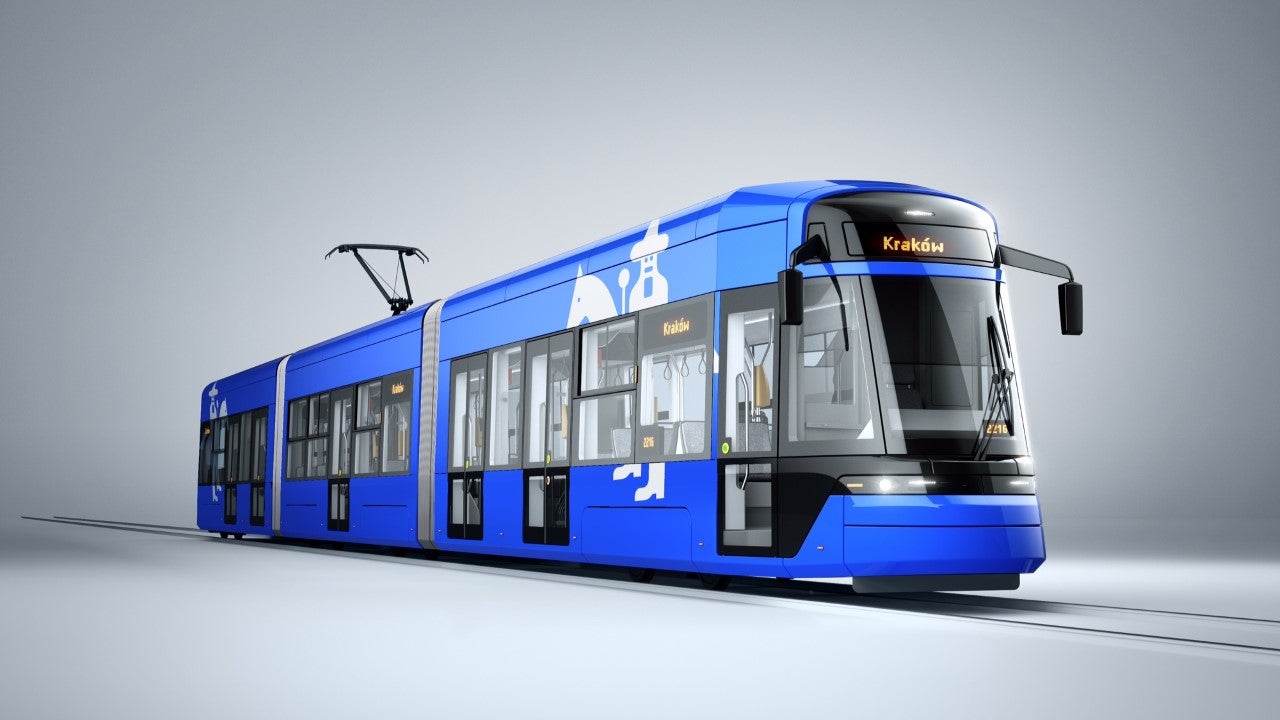
January this year saw the test runs of Stadler’s latest tram for Kraków. The tram is the first of fifty modern vehicles that will be able to move around the city without using the overhead contact line, thanks to Medcom’s battery supply system. All of the trams are to be delivered by the end of 2020.
The capital of the Małopolska region will use the low-floor Tango Lajkonik tram. The model is 33.4m long and 2.4m wide. Each of the trams includes 80 seats and can transport up to 227 passengers. The vehicles use bogies that contribute to less wheel and track wear and considerably lower vibrations generated during travel.
Eco-friendly trams
One of the innovations developed by Medcom for this vehicle is the high-performance battery supply system that will make it possible for the trams to travel up to 3km without any power supply from the overhead contact line. Initially, the batteries will be installed in two vehicles, while the others will be adapted for future installation. Thanks to the power supplied by the batteries, the trams will be able to use parts of Kraków’s routes without the need to extend the city’s overhead contact line, which would disturb the cityscape of the Old Town.
“We developed our first on-board energy storage devices in 2014 for Siemens. This solution enabled the vehicle to cover as many as 24km without any power supply from the overhead contact line and thus set a Guinness World Record for the longest distance covered by a tram powered by batteries only. What was once a considerable challenge and an important experiment to us is now being introduced into series production in Polish trams,” says Paweł Choduń, Medcom.
Each of the trams will also be equipped with Medcom’s E-recycler, a supercapacitor-based energy recovery system that will make it possible to recover the energy generated during braking of the vehicle. In Poland, the E-recycler is installed in trolleybuses in Gdynia and trams in Gdańsk, among others.
